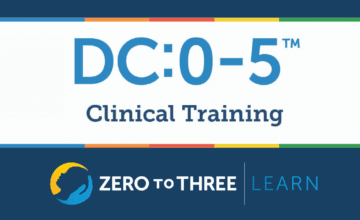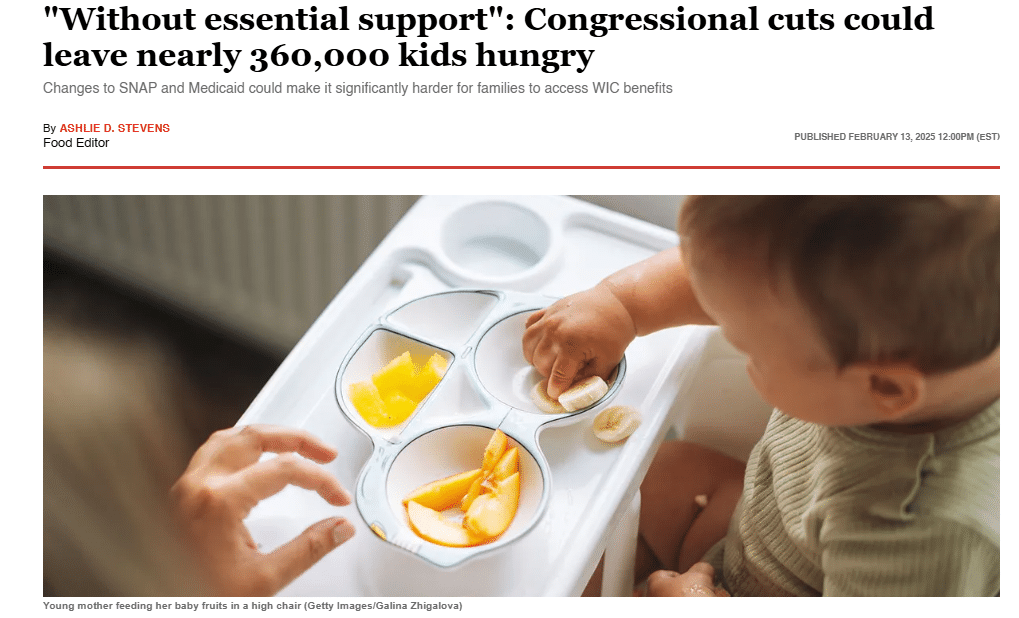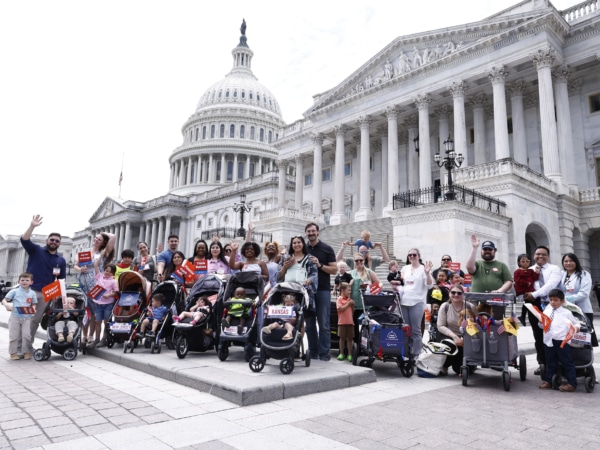
Virtual
April 22, 2025
DC:0—5™: Clinical Training
Tailored for those working with infants and young children, focusing on assessment, diagnosis, and case formulation.
Details

SNAP helps families afford nutritious food, preventing malnutrition and developmental delays caused by food insecurity. No baby should go hungry, yet reductions in SNAP benefits would make it harder for families to provide the nourishment their children need to thrive. Protecting access to nutritious food is essential for babies’ well-being and long-term development.
This resource center is designed for early childhood professionals working with families affected by food insecurity and changes to SNAP benefits or other essential services. It provides trauma-informed guidance, tools, and connections to help professionals support the developmental and emotional well-being of babies, toddlers, and their caregivers facing financial instability and limited access to healthcare and nutrition.
Our federal policy team is deeply involved in shaping decisions that impact the well-being of babies and their families. Stay up-to-date on our latest issues.

An estimated 4.5 million children ages 0-4 participate in SNAP.
Nearly 62 percent of SNAP participants are in families with children.
In 2023, nearly 14 million children – or one in five children – in the United States faced hunger, which means they didn’t have enough food to eat.
First Focus on Children urges the administration to protect and enhance Medicaid and the Children’s Health Insurance Program (CHIP), which together insure half of all U.S. children, improve infant and maternal health, upgrade pediatric emergency and cancer care.
Brain development is most sensitive to a baby’s nutrition between mid-gestation and two years of age. A baby’s birth weight and brain size are significantly influenced by the mother’s nutrition during pregnancy.
SNAP has been found to decrease families’ and children’s food insecurity, providing crucial support to families in every state. SNAP helps millions of households with children afford a nutritionally adequate diet each month and must be properly funded.
This presentation showcases research addressing the intent and efficacy of SNAP and TANF in reducing poverty and how states are administering benefits.
Economists developed a methodology to analyze potential redundancies between two food assistance programs — SNAP and WIC. Their research shows that participating in both programs compared to SNAP alone increases food security by at least 2 percentage points and potentially as much as 24 percentage points.

At the heart of the issue is adjunctive eligibility, a streamlined process that allows families to qualify for WIC if they are already enrolled in other income-tested programs like Medicaid or SNAP.
The Special Supplemental Nutrition Program for Women, Infants, and Children (WIC) can help you and your young children get food, nutrition counseling, and social service referrals. Find out if you are eligible for WIC.
Temporary Assistance for Needy Families (TANF) is a federally funded, state-run program. Also known as welfare, TANF helps families pay for:














What do mental health issues in young children look like?



|
2025 LEARN Conference registration is now open! Join us in Baltimore Oct. 8-9.
|